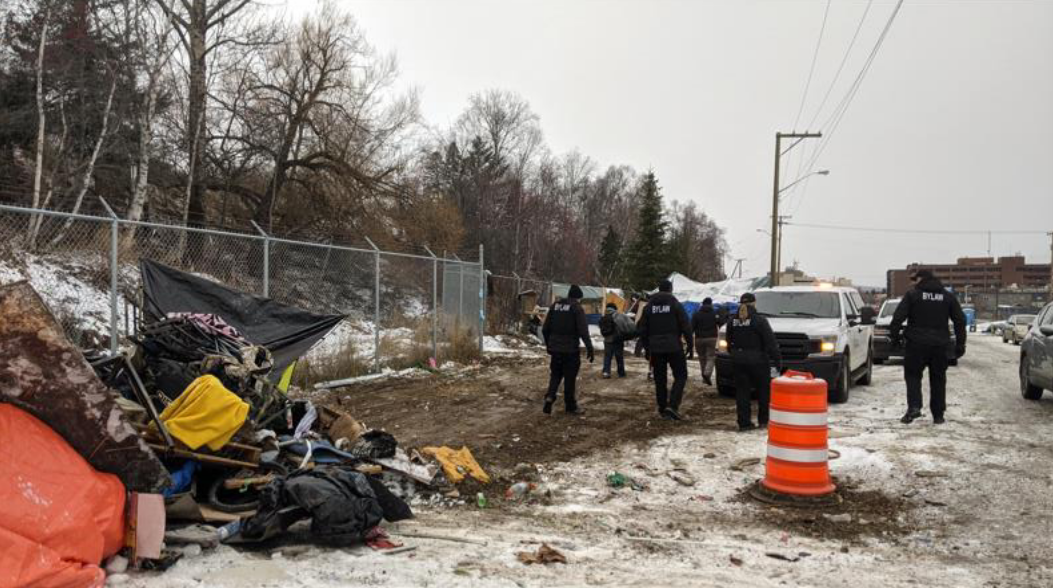
Today the Office of the Federal Housing Advocate released a series of research reports on homeless encampments that confirm a human rights crisis is unfolding in cities across Canada.
There has been a visible rise in homeless encampments since the start of the pandemic. People have lost their livelihoods and their homes, the number of shelter spaces decreased, and indoor services became unsafe. Many people had little choice but to live in tents or turn informal shelters to survive.
These reports provide critical information on the emerging issue of encampments in five regions of Canada. One of the case studies, by UTSC Sociology Chair Joe Hermer, focuses on the Moccasin Flats encampment in Prince George, B.C.
Many people living in encampments face harassment and violence from police, bylaw officers, and members of the public. They do not have access to basic services like clean water or heat. Some have suffered harm or have died as a result of exposure, fire, overdose, and other threats to life and safety. These conditions amount to violations of fundamental human rights, including the human right to housing.
The reports confirm that a punitive approach to encampments is failing. Tearing down encampments is unsafe and can amount to forced eviction, which is a serious violation of human rights. The researchers note that this approach does not address the underlying conditions that have led to the growth of encampments in the first place, and it does not respect the rights or increase the safety or housing security of encampment residents. Critically, a punitive approach also removes choice from encampment residents and destroys the mutual aid and community connections they have built to care for one another within a broken system.
Governments and decision-makers at all levels must centre human rights and the right to housing in their approaches to encampments. The reports recommend five key areas where Canada must do better to uphold the rights of encampment residents.
- Stop the use of policing and law enforcement as a response to encampments
- Provide funding and services at all levels of government – to support municipalities that are facing the disproportionate impact of addressing the existence of encampments, and to invest in short and long-term housing options and supports for encampment residents
- Ensure the meaningful participation of encampment residents in decisions that affect them
- Recognize the distinct rights of Indigenous Peoples and include them in the development of policy approaches to encampments
- Address the conditions within encampments and provide access to basic services such as clean water, sanitation facilities, electricity and heat
This in-depth look at encampments will help the Advocate and decision-makers take action to better support encampment residents and uphold their fundamental human rights and human right to housing.